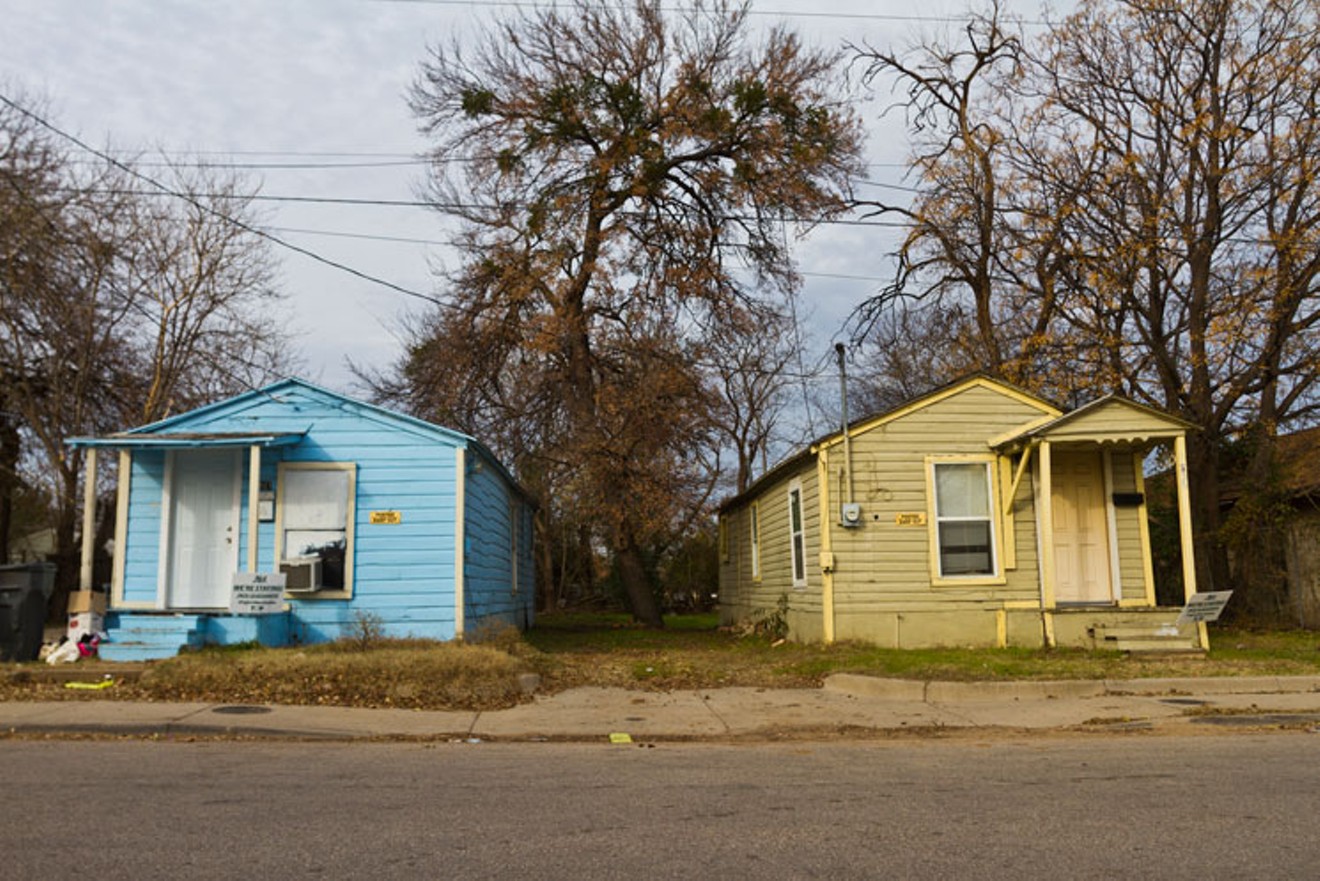Through zoning and financing initiatives, the plan calls for increasing housing production, improving existing housing stock and encouraging home ownership in three types of targeted areas — redevelopment areas, stabilization areas and emerging market areas — throughout the city.
The city's identified redevelopment areas are sites that already have major projects scheduled to begin in the next year, such as Red Bird, the area surrounding the Valley View mall in North Dallas and the area just south of downtown where the proposed high-speed rail station may be built.
Stabilization areas, as classified by the plan, are areas on the edges of desirable neighborhoods — like West Dallas, Casa View in far East Dallas and the eastern edge of downtown Dallas — that are vulnerable to gentrification. In these areas, the plans calls for promoting density and affordable housing with tax incentives, as well as freezing property taxes for those already living in the area.
Finally, the city hopes to build the base for future development in emerging markets like Pleasant Grove and the area near the University of North Texas at Dallas by providing city money for increased code enforcement and infrastructure development so that when people are ready to move into the neighborhoods, the neighborhoods will be ready, too.
Opponents of the new housing policy claim that by targeting certain neighborhoods with federal housing cash, the city is giving up on areas that have long depended on that money for survival. At Wednesday's meeting, former City Council member Diane Ragsdale called out the council for giving up on South Dallas years too early.
"This housing policy states loud and clear that there are neighborhoods too poor to be helped," Ragsdale said. "Our neighborhoods in southern Dallas have never received equitable city services. This policy, once again, does not address inequities. The city should be investing in neighborhoods they have neglected over and over and over again. It takes generations to overcome years of racism.""This housing policy states loud and clear that there are neighborhoods too poor to be helped." — former Dallas City Council member Diane Ragsdale
tweet this
Dallas City Council member Philip Kingston said that he sympathized with Ragsdale but that the city needed to try something new because current policies haven't worked.
"It is absolutely fair for people in those communities to say, 'When you pass this housing policy that cuts us out of federal funding, you better find other ways to fund us,'" Kingston said.
Even without federal money, Kingston said he's committed to making sure those communities won't be left behind.
"Whatever restrictions are placed on us by federal law, I am committed to finding money from neighborhoods like Mill City ... neighborhoods that we all know need infrastructure development, need economic development and need jobs for their people," Kingston said. "Just because we passed this housing policy does not mean that we ignore the transportation policy that will come to us in November or that we ignore the economic development policy that will come to us in February."
Most members of the council agreed that while the new policy doesn't help every neighborhood and every person in the city who needs it, it's important that the city move forward with a clear plan for working on the middle-class housing crunch.
"It's not going to save everybody in District 6, but it's going to do a heckuva lot of work to stabilize [the district], especially in West Dallas," District 6 City Council member Omar Narvaez said. "We don't want to put every single detail in here because that will muddle up and muddy up the policy. ... We can go back and fix things, change things and amend things, but we gotta start somewhere."












